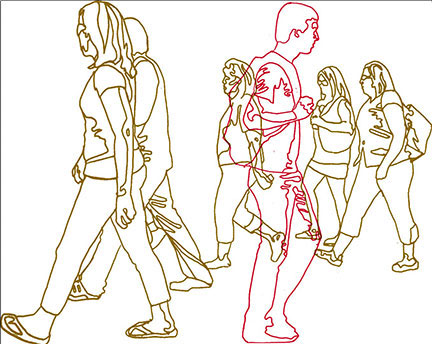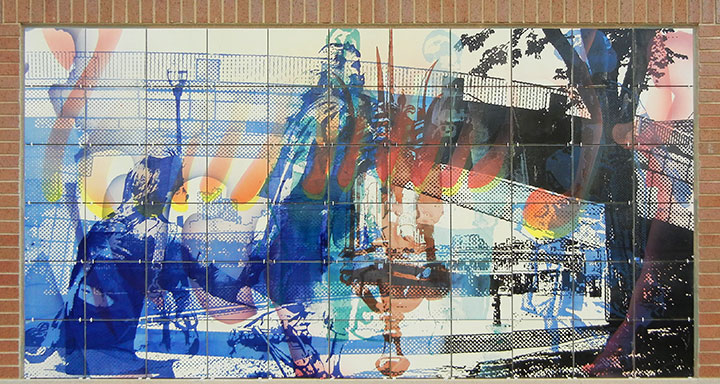The tiles are silk-screen glazed and airbrushed with images created by stenciling. The process is complex, with the historic photographs divided into sections of imagery, and then each section being divided into high contrast darks and lights. Stencils are made from these dark and light facets. The stencils are applied to the tile and block out areas of the tile for airbrushing. Finally, glaze is added by using a squeeze bottle to create colorful trailings across the images. The glazed tiles are then low-fired in a kiln. The imagery for this station is drawn from photos of the University of Minnesota, local mill workers, Interstate 35W and St. Anthony Falls.
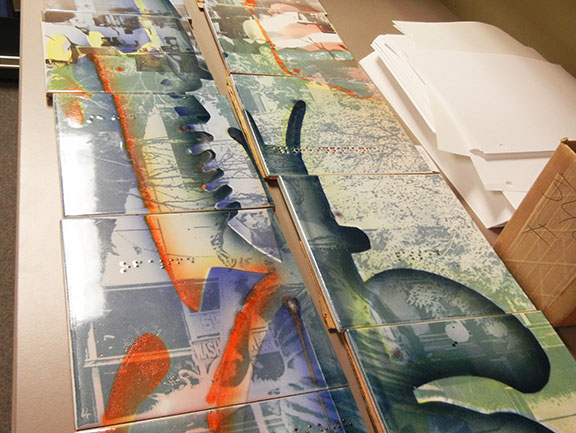
Detail of Stadium Village Station tiles, notice braille.
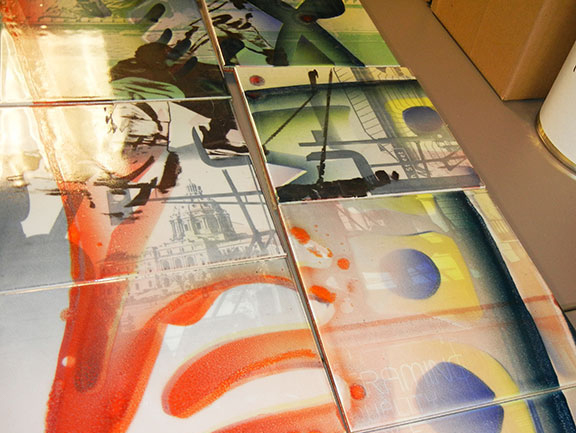
Detail of Stadium Village Station tiles with photo silkscreens and painted glazes.
Born and raised in Koreatown of Los Angeles, Roberto L. Delgado is both a public and studio artist whose mural works feature his encounters with the people, neighborhood and community that surround him.
Delgado spent nearly two decades in Chiapas State, Mexico, where he practiced and refined his mural painting skills. He eventually began to include mediums, such as photosilkscreen and tiles, into his public art practice.
Delgado was the recipient of the 1995 Fulbright Teaching Fellowship in Honduras and the 1987 Fulbright Research Fellowship in Mexico. His achievements include commissioned projects with local governments in Los Angeles, San Jose and the Twin Cities.
titodelgado.com
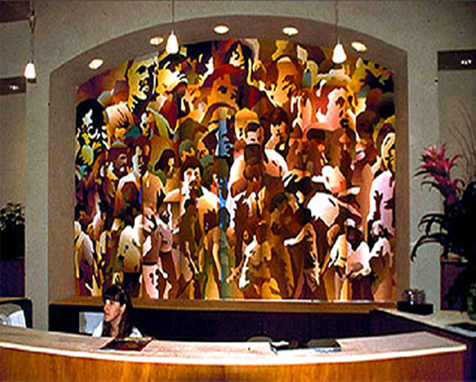
El Pueblo, San Jose, CA 1999
Each mosaic at this station is a combination of images from the surrounding environment. Some of the images are historic photographs and some were of the time the mosaics were made. Other images include line drawings and colored glaze splashes and strokes. All these images are overlapped to express a layered and rich history to the area. Here are examples of images for one large mosaic.
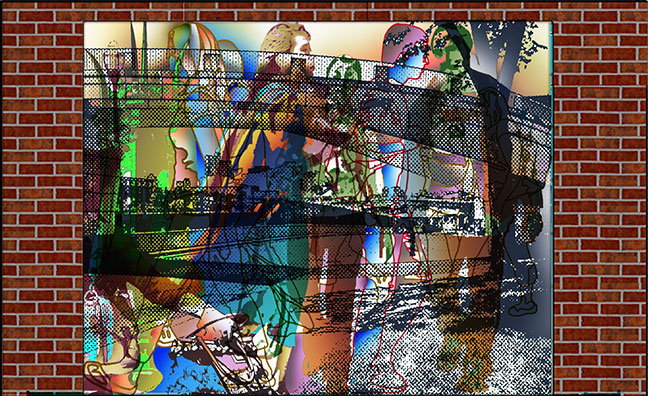
This is the final concept design. The following are images used to create the final design.
